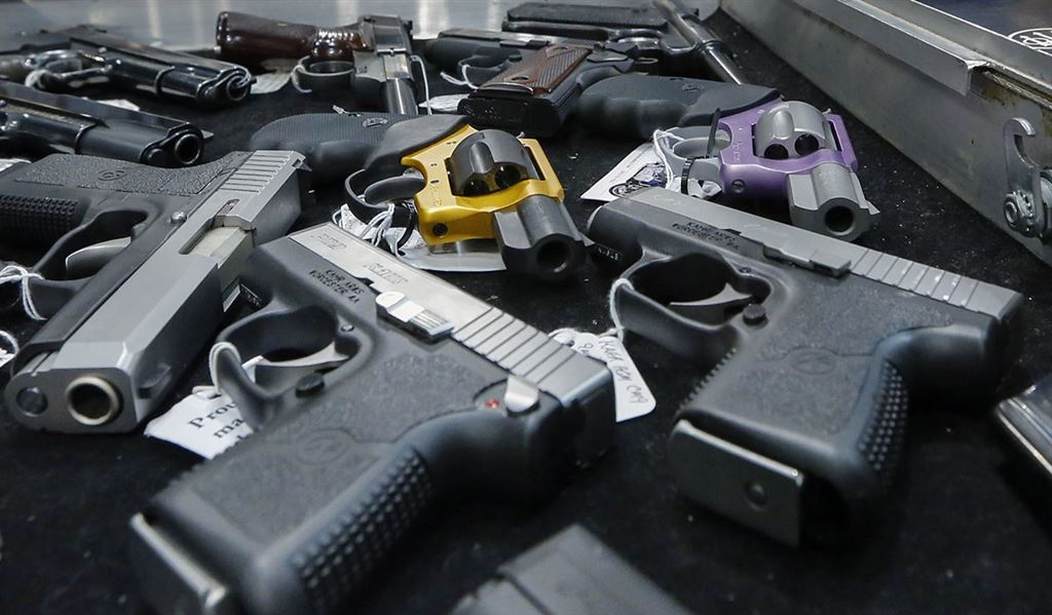When I use the words “mental illness,” what do you think of?
You might think of someone who you know who has anxiety attacks and sometimes has to back away from things for a bit until things settle out. Or maybe you think of a friend who suffers from depression.
Then again, maybe you think about the paranoid schizophrenic who screams about the moon ferrets right before stabbing someone in a supermarket with a mechanical pencil.
None of these are wrong, either. The term is a broad umbrella that covers an awful lot of territory.
As things stand, the mentally ill who are truly dangerous can be prohibited from owning firearms under federal law. However, a couple of bills in Wisconsin seek to take steps to make it more difficult for those who may not be that bad off.
A group representing over 1,500 social workers has publicly endorsed two bills aimed at keeping guns out of the hands of people who are a danger to themselves or others, stating the bills would reduce suicides and gun violence.
Despite overwhelming support from over 80% of Wisconsinites, it will be difficult for the bills to make it through the Republican-controlled legislature, the bill’s sponsor Sen. Melissa Agard, D-Madison, said in an email statement to The Badger Herald.
Bill LRB 2751, would require all guns to be purchased through a federally licensed gun dealer, Agard said. Federally-licensed gun dealers are required by law to conduct background checks on their buyers, according to the Federal Bureau of Alcohol, Tobacco, Firearms and Explosives. People who cannot pass the background check — which includes convicted felons and people with a history of domestic assault — cannot purchase a firearm, according to the ATF.
The other bill, LRB 3007, would establish an Extreme Risk Protection Order procedure — also known as a red flag law — in Wisconsin. Under it, families would be able to petition the court to temporarily confiscate the firearms of a family member that a judge determines to be a danger to themselves or others, Agard said.
Left out of the description of the ERPO, though, is that the guns are taken before the judge ever lays eyes on the individual and before any mental health professional examines the person in question.
Way to further stigmatize mental illness. I’d expect better from social workers, to be honest.
See, gun owners who might be depressed are currently free to tell their family members what’s going on without any fear. The family can try and help or suggest therapy or do any number of things to help the individual with their struggles, but the worst they can do is getting them committed for 72-hours if they are a threat to themselves or others.
Even then, though, they’re evaluated by a mental health professional before being admitted.
With an ERPO, though, the family can learn that a loved one is depressed and simply call for their guns to be taken. Knowing this, many will be reluctant to talk about what’s going on with them out of fear their guns will be taken away.
How is this good for anyone?
Keep in mind that an estimated 16.2 million people suffer from depression in this country. If it was a foregone conclusion that depression automatically equated to suicide, we’d have a lot higher rate of suicide. We don’t. That’s because people who are suffering aren’t necessarily a danger to themselves or anyone else. Mental illness is bad enough as it is, but to push people to suffer in silence isn’t a good answer.
Yet not everyone realizes this. Family members can freak out over someone’s depression. They can overreact and fear that their loved one is a danger when nothing could be further from the truth.
But social workers, people who should know this, are backing this bill. They’re working to further stigmatize mental illness because…why? Do these people really hate the Second Amendment that much?
Apparently so.








Join the conversation as a VIP Member